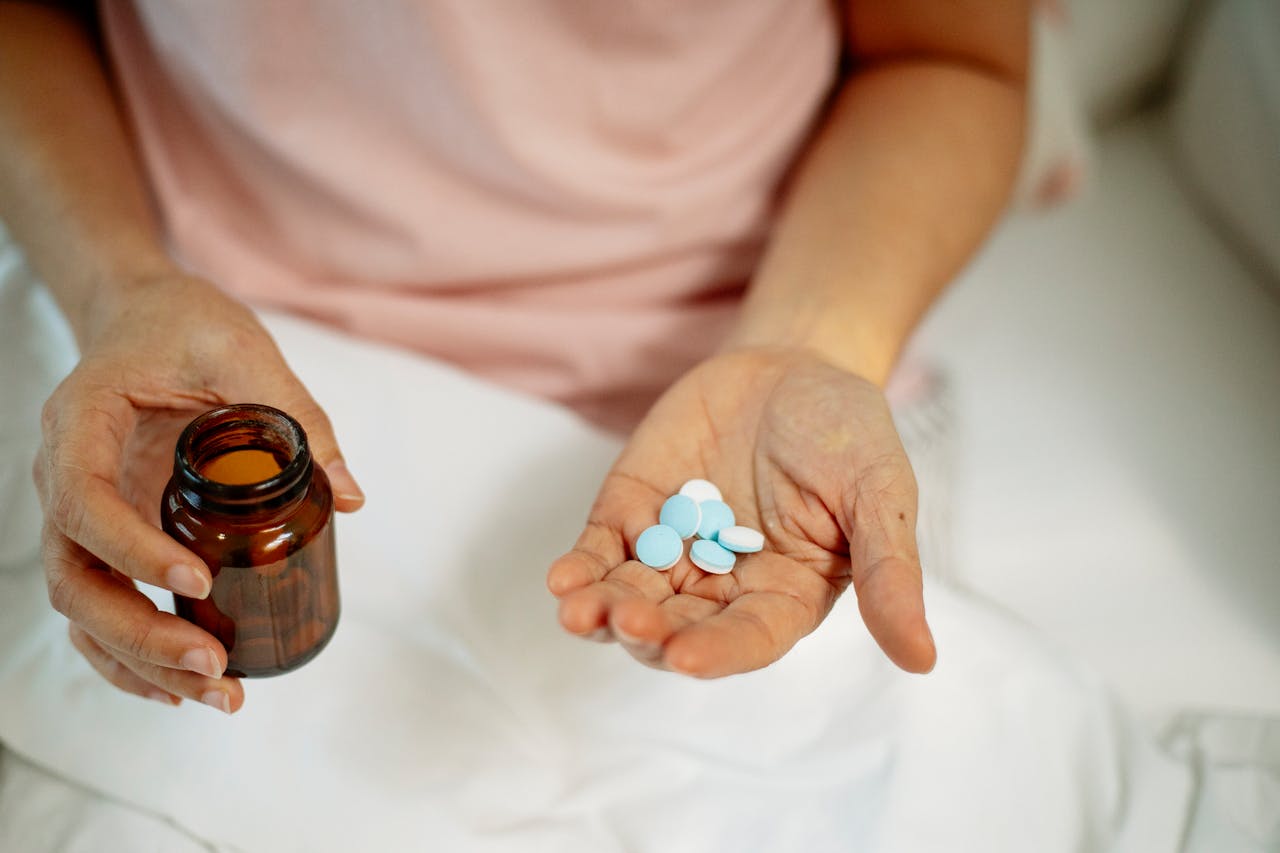
Table of Contents
Learn more about the concept of a placebo and the power of the placebo effect, and understand that there is more to the placebo effect than positive thinking.
Key Takeaways
- Definition: The placebo effect occurs when a placebo drug, such as placebo pills, leads to improvements similar to an active drug, due to belief rather than the treatment itself.
- Applications: Commonly used in randomised controlled trials and placebo-controlled trials to test the effectiveness of new treatments.
- Mechanism: Placebo responses are driven by psychological factors like expectation and conditioning.
- Ethical Considerations: The use of a placebo group in clinical practice raises ethical concerns, especially when compared to a real drug.
- Impact: Placebo research shows significant effects on patient outcomes, influencing trial results.
- Potential Uses: Exploring how placebo responses can enhance treatment outcomes without deception.
What is a Placebo?
According to the American Society of Pain Management, a placebo is a treatment or substance that seems like an actual medical treatment but is void of any therapeutic benefit. Placebos could be in:
- Shots
- Pills
- Sham surgery
- Inert injections
- Other procedures
Placebos can impact how patients view and perceive their health conditions and encourage the body to relieve symptoms and experience pain relief but do not impact the disease or condition itself.
Placebos are used in medical research to help researchers understand the effect of new drugs or treatments on specific conditions.
Placebo Response
Placebo interventions vary based on types and strengths. For instance, they could be in many forms, such as an injection or a sugar pill. Clinical trials often use these as a control for the treatment being researched.
Clinical Trials
In clinical trials and drug research, a placebo resembles an active therapy or medication to function as a control. This prevents the person receiving the placebo from knowing whether they have the inactive or active therapy or medication, and this is done with the individual’s consent.
The purpose of the randomized controlled trial is to minimize bias, as individuals can have expectations about the efficacy of a specific drug or treatment, which can influence their response to the treatment or substance.
Thus, changes in the placebo groups or a measured response of subjects in the control group in any randomized controlled trial are known as the placebo response.
What is The Placebo Effect?
The difference between no treatment and the placebo response is called the placebo effect.
The placebo effect is a therapeutic outcome that individuals experience from an inactive or inert treatment.
The power of the placebo effect became more common in the 20th century and was derived from an influential 1955 study highlighting the clinical importance of the placebo effect.
Placebo effects can include patients reporting improved outcomes like nausea and chronic pain.
It is difficult to measure the placebo effect even in the best-conducted clinical trial because patient experiences are subjective, and there might be no visible improvements in objective measurements.
For example, in insomnia studies, patients might report sleeping better, but there might not be measurements on scales of sleep onset latency.
How the Placebo Effect Works
- Psychological Effect: The placebo effect describes a treatment's physical or psychological effect on an individual. The exact mechanism by which placebos work is yet to be completely understood.
- Neurotransmitters: Research claims this concept involves neurobiological reactions with the increasing release of feel-good neurotransmitters, including dopamine and endorphins.
- Brain Activity: Others link it to higher activity in areas of the brain associated with self-awareness, mood, and emotional awareness.
- Psychological Theories: Common psychological theories to explain placebo effects include classic conditioning, expectancy theory, placebo analgesia, and brain/body connection.
Life Expectancy Theory and Classical Conditioning
The placebo effect occurs in an individual’s preconceived notions and expectations regarding the impact of a specific treatment on their disease or condition.
If the individual expects that the substance or pill will have an effect, there is a possibility that chemical changes in the body can produce similar effects to medication.
The response to the placebo can be negative or positive. A person’s symptoms might improve, which are the positive effects, or they might experience the nocebo effect.
The nocebo effect occurs when their negative beliefs about the placebo treatment come true, and they experience negative effects.
The outcome of the placebo effect is usually correlated to the person’s expectations regarding the treatment. If the person expects a negative effect, this will likely be the outcome, and vice versa.
Similarly, classical conditioning can also explain the placebo effect, where the actual stimulus and the placebo are simultaneously used until the placebo is linked to the effect of the actual stimulus.
Classical conditioning has a longer-lasting effect than life expectancy theory because it affects individuals in the early stages of information processing.
Placebo Analgesia
Functional imaging studies and activation in brain regions show activity in the amygdala, nucleus accumbens, prefrontal, orbitofrontal and insular cortices, and spinal cord when submitted to placebo analgesics.
Placebo analgesia is influenced by the release of endogenous opioids in the brain.
Top-down processes and dopaminergic pathways mediate the placebo effect as activation by the opioids changes processes in the lower brain.
Ethical Concerns Related to the Use of a Placebo
Ethical concerns about using placebo treatments in medical practice and research trials are often raised. Individuals can experience pain relief and other benefits when they know they are taking a placebo. However, the approach has limitations and involves unconscious deception.
One of the ethical concerns is the clinical trials placebos. Placebos have been used in clinical trials for a long time for drug testing, making them an essential part of research into new therapies and treatments.
Double-blinded studies are conducted where individuals need to know if they are getting actual treatment or a placebo to minimize biased results. This is where informed consent for a placebo is questioned. Before participating in research studies, it is usually stated that the individual may get a placebo pill rather than the real treatment.
Uses of Placebo Effect
The placebo effect is apparent in treating pain-related conditions and for continuous and subjective measures based on a Cochrane Collaboration review.
It is used in many clinical trials to obtain unbiased and objective data regarding the efficacy of certain medical treatments.
Depression
Data from meta-analysis shows that placebos accounted for response to antidepressants in 82% of studies on depression.
Antidepressants are often replaced by sugar pill placebos, allowing researchers to conduct randomized trials. A review of primary studies shows that placebo antidepressants were effective.
Pain
Studies claim that placebos can alter an individual’s perception of pain and result in reinterpretation of their pain experiences. Placebo analgesia refers to the ability of the placebos to reduce pain. These can often cause a physical effect of reduced pain perception.
The magnitude of the placebo analgesia is usually measured by conducting both hidden and open studies, in which some participants are informed of the analgesic they receive (open), and others are given the analgesic without knowing (hidden).
Analgesics are commonly more effective in open-label placebos.
Takeaway
Current and future research is focused on exploring the effectiveness of the placebo effect and how it can be utilized beneficially instead of minimizing or dismissing the placebo effect.
Some studies show that placebos have worked in several situations, especially when testing for new treatments and their use with conventional medical treatments and therapies.
Many factors contribute to the effectiveness of placebos and the result of an inactive substance on a real disease or condition.
A person’s expectations and perceptions of the treatment will inevitably determine the actual outcome of the fake treatment. This often becomes a reality if a person expects a positive outcome and effective treatment.
On the other hand, a person who is skeptical and fears a negative outcome or side effects will almost always experience this.
Frequently Asked Questions About Placebo
What is an example of a placebo treatment?
The placebo effect is often utilized in medical studies and research trials to determine the efficacy of the actual treatment. Placebos themselves have also been thoroughly researched to determine how accurate their outcome is.
They are often seen in the form of sugar pills, fake injections and other fake treatments. The placebo effect does not only occur in medicine, however. It is also seen in many daily occurrences.
For example, some claim that a crosswalk button has a placebo effect to give people the impression that they are not waiting as long. Whether this is the truth or not, it is the perfect example of the brain’s ability to construct its truth.
Is the placebo effect real?
Many studies have proven the placebo effect's effectiveness and legitimacy. Many of these have proven with objective evidence that the placebo effect is a real biological response.
With the right expectations regarding treatments, the brain can be tricked into positive or negative outcomes.
References
Placebos: The power of the placebo effect
Placebo effect - Better Health Channel
The power of the placebo effect - Harvard Health
Disclaimer
The contents of this article are provided for informational purposes only and are not intended to substitute for professional medical advice, diagnosis, or treatment. It is always recommended to consult with a qualified healthcare provider before making any health-related changes or if you have any questions or concerns about your health. Anahana is not liable for any errors, omissions, or consequences that may occur from using the information provided.

By: Anahana
The Anahana team of researchers, writers, topic experts, and computer scientists come together worldwide to create educational and practical wellbeing articles, courses, and technology. Experienced professionals in mental and physical health, meditation, yoga, pilates, and many other fields collaborate to make complex topics easy to understand.
